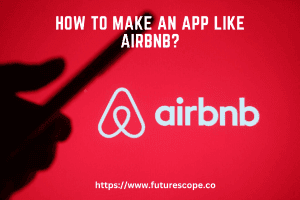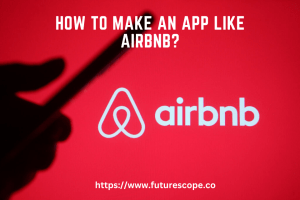What We Have Covered in This Article
Last Updated on April 3, 2023 by Editor Futurescope
Online auctions have become increasingly popular in recent years, and many businesses are interested in building their own auction platform. However, one of the biggest questions that arises is how much it will cost to build an online auction platform. The answer to this question is not straightforward, as the cost will depend on a variety of factors.
One of the primary factors that will impact the cost of building an online auction platform is the features and functionality that are included. For example, a basic auction platform with limited features will likely cost less to build than a more complex platform with advanced bidding options, payment processing, and other features. Other factors that can impact the cost include the development team’s hourly rates, the platform’s hosting and maintenance costs, and any necessary integrations with third-party tools or services.
Despite the many factors that can impact the cost of building an online auction platform, it is possible to get a general idea of what to expect. By understanding the factors that can impact the cost and working with a reputable development team, businesses can ensure that they are able to build an online auction platform that meets their needs and fits within their budget.
Factors Affecting the Cost of Building an Online Auction Platform
Building an online auction platform can be a complex and costly undertaking. The cost of building an online auction platform can vary widely depending on several factors. In this section, we will explore some of the key factors that can affect the cost of building an online auction platform.
1. Features and Functionality
The features and functionality of an online auction platform are the most significant factors that affect the cost of building it. The more features and functionality you want to include in your platform, the more it will cost. Some of the features that can increase the cost of building an online auction platform include:
- Real-time bidding
- Push notifications
- Payment processing
- Inventory management
- Seller verification
- Buyer feedback and ratings
- Shipping and tracking
- Mobile app integration
2. Design and User Experience
The design and user experience of an online auction platform can also significantly affect the cost of building it. A well-designed platform with an intuitive user interface can attract more users and increase engagement. However, designing and developing a user-friendly platform can be a time-consuming and expensive process. Some of the design and user experience factors that can impact the cost of building an online auction platform include:
- Logo and branding
- Website layout and structure
- Navigation and search functionality
- Product images and descriptions
- Checkout process
- Responsive design for mobile devices
3. Technology Stack and Infrastructure
The technology stack and infrastructure you choose for your online auction platform can also affect the cost of building it. The technology stack refers to the programming languages, frameworks, and tools used to develop the platform. The infrastructure refers to the hardware and software components that support the platform. Some of the technology stack and infrastructure factors that can impact the cost of building an online auction platform include:
- Hosting and server costs
- Database management
- API integration
- Security features and protocols
- Scalability and performance optimization
Overall, building an online auction platform requires careful planning and consideration of several factors that can impact the cost. By understanding these factors, you can make informed decisions that can help you build a successful platform that meets your needs and budget.
Essential Features of an Online Auction Platform
When building an online auction platform, there are several essential features that should be included to ensure its success. These features include:
- User Registration and Login: This feature allows users to create accounts and log in to the platform to participate in auctions, track bids, and manage their personal information.
- Search Functionality: Users should be able to search for specific items or categories of items they are interested in bidding on. The search function should be easy to use and provide accurate results.
- Bidding System: The bidding system should be secure and easy to use. It should allow users to place bids, view current bids, and receive notifications when they have been outbid.
- Payment Processing: The platform should have a secure payment processing system that allows users to pay for their items after winning an auction. This system should be easy to use and provide multiple payment options.
- Item Listing: Sellers should be able to create listings for their items, including descriptions, photos, and starting bid prices. The platform should also allow for multiple images and video uploads.
- Feedback and Rating System: A feedback and rating system allows users to rate and provide feedback on their experiences with other users. This helps to build trust and credibility within the platform.
- Mobile Responsive Design: With the increasing use of mobile devices, it is essential that the platform is mobile responsive and easy to use on smaller screens.
By including these essential features, an online auction platform can provide a secure and user-friendly experience for both buyers and sellers. However, it is important to keep in mind that additional features may be necessary depending on the specific needs of the platform and its users.
Types of Online Auction Platforms
There are different types of online auction platforms available in the market. Each type has its own unique features and functionalities. Here are some of the most common types:
Penny Auctions
In penny auctions, players pay a non-refundable fee to place small incremental bids. At the end of the auction, the last bidder wins and delivers the final bid amount. Penny auctions are popular for items that are highly desirable but not easily available in the market. These auctions can be highly competitive and require a lot of attention from the bidders.
Peak Auctions
Peak auctions operate on a limited number of hours or days in a week. During this time, bidders can place their bids on the items available for auction. At the end of the auction, the highest bidder wins the item. Peak auctions are popular for items that are in high demand and have limited availability. They are also used for fundraising events and charity auctions.
Free Auctions
Free auctions are the most common type of online auctions. They are open to everyone and do not require any fee to participate. In free auctions, bidders can place their bids on the items available for auction. At the end of the auction, the highest bidder wins the item. Free auctions are popular for selling items that are easily available in the market.
Each type of online auction platform has its own unique advantages and disadvantages. It is important to choose the right type of auction platform based on your business requirements and target audience.
Cost Breakdown of Building an Online Auction Platform
Building an online auction platform can be a complex process that requires careful planning and budgeting. Here is a cost breakdown of the major expenses that you can expect to incur when building an online auction platform:
| Expense | Cost |
| Development | $25,000 – $50,000 |
| Design | $5,000 – $15,000 |
| Hosting | $100 – $500 per month |
| Payment gateway integration | $1,000 – $5,000 |
| Marketing and advertising | $5,000 – $20,000 |
| Maintenance and support | $1,000 – $5,000 per month |
Development costs will depend on the complexity of your platform, the number of features you want to include, and the experience and expertise of your development team. Design costs will depend on the quality of the design you want and the number of design iterations required.
Hosting costs will depend on the size of your platform and the amount of traffic it receives. Payment gateway integration costs will depend on the payment gateway you choose and the level of integration required.
Marketing and advertising costs will depend on your marketing strategy and the channels you use to promote your platform. Maintenance and support costs will depend on the level of support you want to provide to your users and the complexity of your platform.
Conclusion
Building an online auction platform can be a lucrative business opportunity, but it requires a significant investment of time and resources. Based on our research, we found that the cost of building an auction website can range from $5,000 to $100,000, depending on the complexity of the platform and the features and functionalities included.
While it may be tempting to opt for a cheaper option, it’s important to keep in mind that a low-cost platform may not be able to compete with established market leaders like eBay or Etsy. Additionally, ongoing maintenance costs can also add up over time, so it’s important to budget for those as well.
When building an auction platform, it’s important to consider factors such as payment processing, security, and user experience. Choosing the right software and development team can also make a significant difference in the success of the platform.
Ultimately, the cost of building an online auction platform will depend on a variety of factors. While it may seem like a daunting task, with careful planning and budgeting, it is possible to create a successful and profitable platform that meets the needs of buyers and sellers alike.









